Ukraine: A post-imperial war for the times
Historian describes conflict as struggle for national liberation.
NBR columnist Nevil Gibson speaks with Fiona Rotherham.
Historian describes conflict as struggle for national liberation.
NBR columnist Nevil Gibson speaks with Fiona Rotherham.
In the 1990s, a common belief, popular on the left and the right, was that the end of the Cold War would herald a period of economic growth and prosperity. Known as the “peace dividend”, it meant democratic countries could spend less on defence and more on social and physical benefits for their people.
It was not to be. The rise of Islamic terrorism, expanding authoritarianism, and the spread of nuclear weapons placed the world in more danger. As a result, defence budgets in the democratic world have risen to meet these threats. The peace dividend has turned into a “war tax,” as The Economist put it.
Quoting the Stockholm Peace Research Institute, the magazine reported defence spending worldwide increased by nearly 4% in real terms to more than US$2 trillion in 2022. KiwiSaver fund managers who preferred ESG priorities to economic returns found out the hard way. Share prices of defence companies, along with those based on fossil fuels, performed way better that the overall stock market.
Countries that had run down their defence spending, notably Germany and Japan, but not excluding New Zealand, boosted their budgets. Japan will become the world’s third-largest defence spender after the US and China by 2027.
The Economist reckons by its own estimates that more than US$200 billion extra will be spent on defence each year. If the countries that spend less than 2% of GDP met that target, and those who do spend just half a percentage point more, it would increase the global outlay by close to US$700b a year.
Readers need no reminder of the reasons for greater world tensions: the Russian invasion of Ukraine, China’s aggression over Taiwan and the South China Sea, Iran’s nuclear programme, and continued civil wars in Africa.
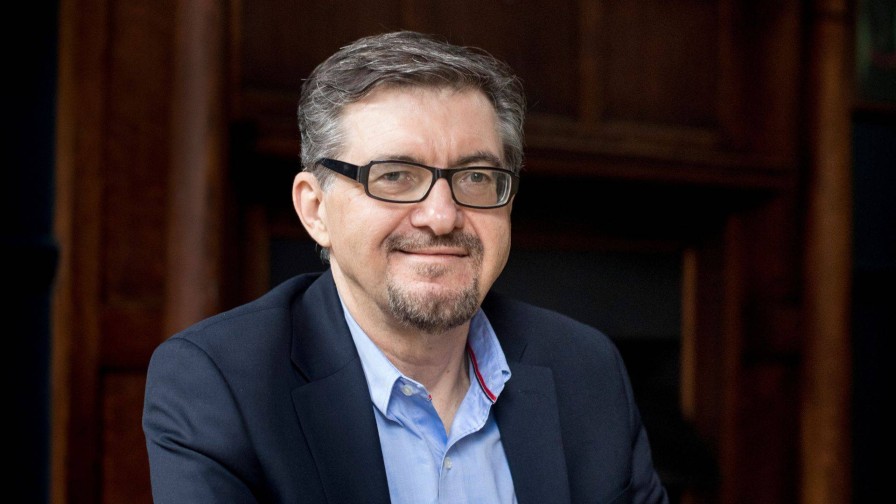
Serhii Plokhy is the world's leading historian on Ukraine.
The Russo-Ukrainian War, by Harvard historian Serhii Plokhy, is one of several books published before this conflict has even ended. Under pressure from his publisher Penguin, Plokhy has produced an historian’s perspective in the form of journalism, which many consider the first draft of history.
Plokhy is the right man for the job as he has published 17 books on the history of Imperial Russia, the Soviet Union, Ukraine, the Cold War, the Chernobyl nuclear disaster and even a spy yarn. He was born in Nizhny Novgorod (known as Gorky from 1932-90) in central Russia but spent his childhood and school years in his parents’ hometown of Zaporizhia, now famous for its nuclear power station on the banks of the Dnieper River than runs through Ukraine.
After eight years of teaching at the University of Dnipropetrovsk, he moved to America where he was appointed head of Ukrainian studies at Harvard in 1996.
Unlike British and American outside experts on Russian history, Plokhy argues the collapse of the Soviet Union and the origins of the Russo-Ukrainian War were due solely to internal factors. This excludes the notion that President Vladimir Putin was provoked by Nato’s expansion and the West’s reluctance to admit Russia to the “world community” of nations.
Plokhy is a Ukrainian patriot and provides a staunch perspective that the war is as existential as Israel’s survival in a hostile Arab world. The Oxford historian Timothy Garton Ash, in a review of another of Plokhy’s books, puts it this way: “Putin is waging a neocolonial war to try to reverse that exit [of Ukraine from the Russian Empire], and the Ukrainians are engaged in an anticolonial war of national liberation just as Indians once were against Britain and Algerians against France.”
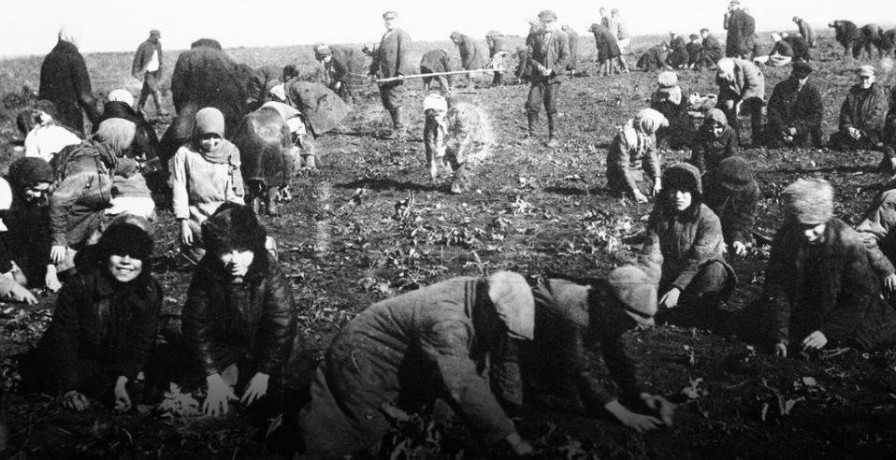
Children collect frozen potatoes during the famine in 1932-33.
For this reason, peace is unlikely until a Ukrainian victory, regardless of what those who call for ceasefires think. Garton Ash describes Ukrainian history as a “vast catalogue of death, bereavement, displacement, destruction, separation, sickness, and hatred, the consequences of which will be felt for generations to come”.
The first half of Plokhy’s 300-page text is the story of this suffering from the origins of a distinct Ukrainian culture and nationalism in the 1830s to the eve of the invasion on February 24, 2022. Ukraine’s emergence as a sovereign state, like its neighbour Belarus, was a creation of the Soviet Union in 1922, and was always limited by the Bolsheviks’ ideological priorities.
In 1929, Stalin began his purge of Ukraine’s elite, including fellow communists, and in 1932-33 he imposed the famine, known as Holodomor, that killed four million – the biggest mass killing in European history to that time.
In the post-Stalin period, Ukrainians asserted their role in Moscow under Khrushchev, who in 1954 “gifted” Crimea to Ukraine. In 1970, the Ukrainian SSR numbered some 42 million against the 118m in the Russian Federation of the USSR and was the heartland of its industrial and agricultural output.
The breakup of the Soviet Union, starting with independence moves by Estonia and Lithuania, strengthened the nationalistic aspirations of Ukrainians, who were the only ones to hold a public referendum on secession. Russian President Boris Yeltsin, who succeeded Mikhail Gorbachev, put up no resistance, just as the imperial powers of Britain and (to a lesser degree) France did after World War II, or Yugoslavia in the Balkans conflicts of 1991-2001.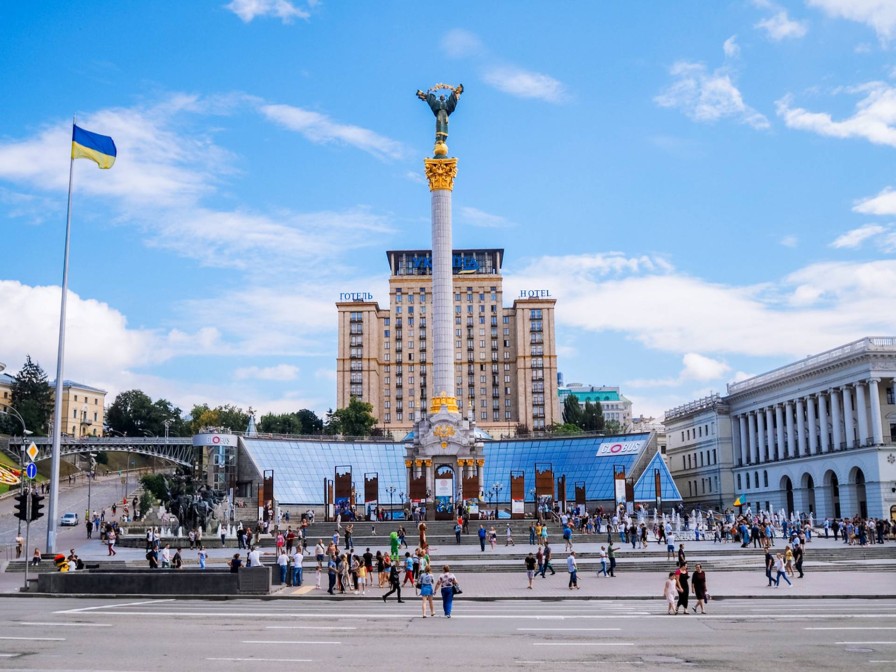
Kyiv's Maidan square was the centre of a protest in 2013-14.
The Ukrainian state was far from a perfect democracy in 1991 on independence. It took two episodes of mass mobilisation, the Orange Revolution of 2004-05 and the Euromaidan, or Revolution of Dignity, in 2013-14, to help build a civil society that was free from Moscow control.
The third, and latest, mobilisation was the response to the 2022 invasion. This is the subject of the second half of Plokhy’s book, which unfolds in a fast-moving account of events up to early this year. Most are still fresh in the memory: the failure of Russia to capture Kyiv; the atrocities of Bucha as Russian troops, with rations for only a few days, realised they weren’t welcome and reacted by looting and shooting civilians; the missile bombardments of hospitals, schools and apartment buildings; the destruction of entire cities such as Mariupol; and the enforced “referenda” on the annexation of Donetsk and Luhansk into Russia.
Then followed the Ukrainian pushback: the re-capture of Kharkiv and Kherson (which “stayed pretty much intact”), the sinking of Russia’s navy flagship, and, not least, the surge in popular support from nations throughout the democratic world.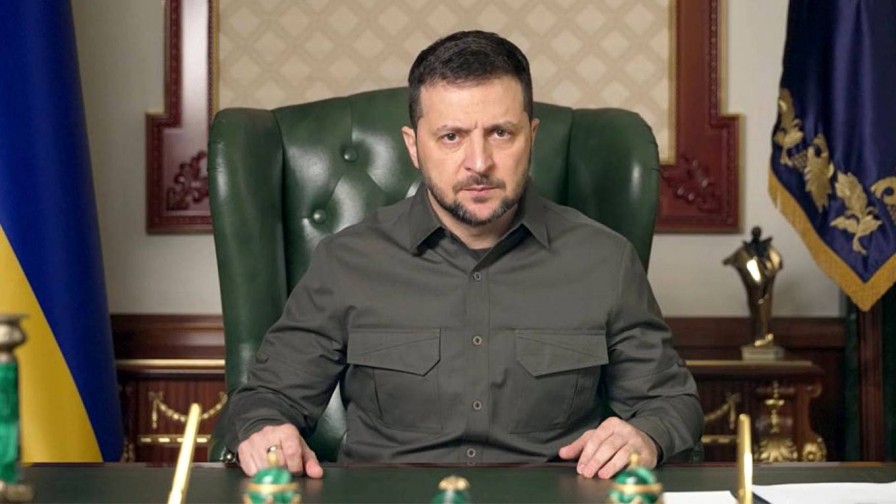
The charismatic Volodymyr Zelensky has united his country.
Plokhy is scathingly dismissive of France, Germany, and Italy, whose leaders initially resisted popular opinion and sought to appease Putin in the cause of “peace” and to avoid “humiliation.” But the US and the UK remained solid, giving Ukraine’s charismatic president, Volodymyr Zelensky, the world stage for his diplomacy, and finally the resources that could win a “good war”.
That term is Plokhy’s as he places the Russo-Ukrainian war in the context of struggles for national liberation going back to the American Revolution of 1776 and dozens of others since; a war started for Russia’s imperial past, using World War II tactics and 21st century weapons, while posing a nuclear threat.
Long term, Plokhy sees Ukraine joining both Nato and the European Union as a fully-fledged democracy, not the demilitarised “buffer state” Putin envisaged. Instead, Russia’s elite will have to reimagine their identity and drop their imperialist aspirations. The invasion has left it much weaker and with few allies; the main ones, China and Iran, are among the war’s main beneficiaries. Iran has a lucrative market for its drones while China, like India, is getting cheaper oil.
Turkey, an untrustworthy Nato member, is another opportunist country that has done well by clipping the ticket on the grain trade out of Russia and Ukraine, while supplying the latter with drones. Meanwhile, the depleted population of Ukraine battles on with slightly better odds than a year ago, thanks to a show of unity among Western nations that might otherwise have never been possible. The peace dividend has indeed been turned on its head.
The Russo-Ukrainian War, by Serhii Plokhy (Allen Lane).
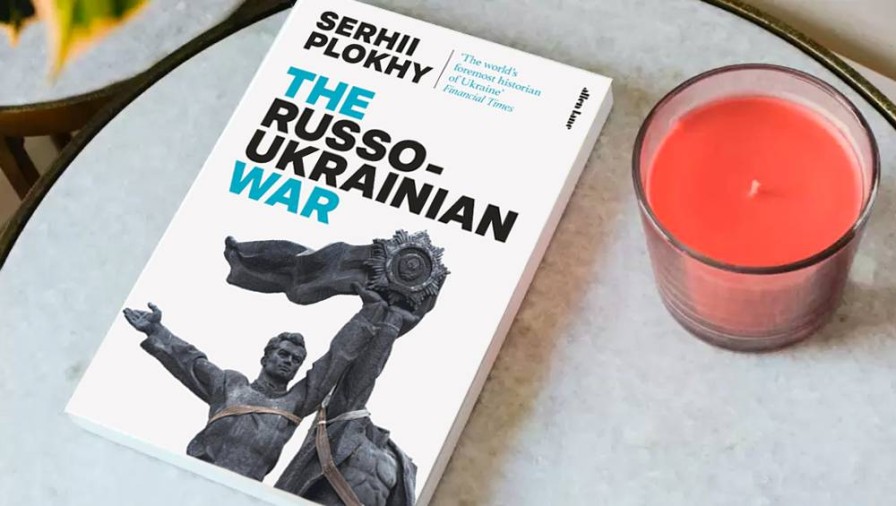
Nevil Gibson is a former editor at large for NBR. He has contributed film and book reviews to various publications.
This is supplied content and not paid for by NBR.
Sign up to get the latest stories and insights delivered to your inbox – free, every day.